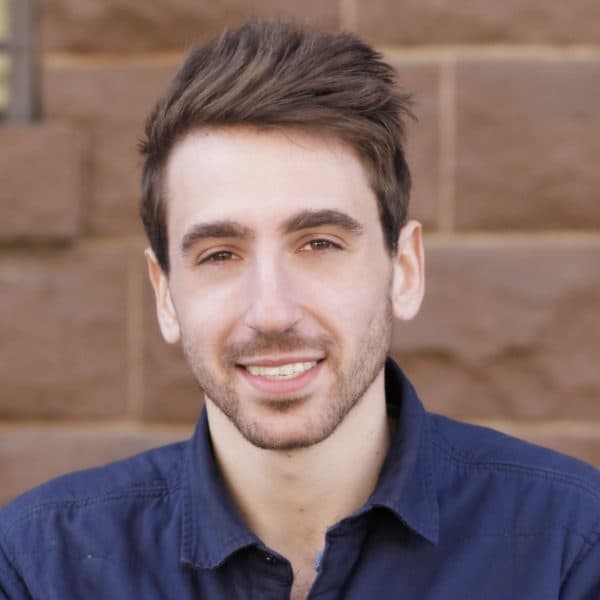#CoveringCOVID: Business Reporter Adrian Ma
Full Transcript
Adrian Ma: So the question was, my name? It's Adrian Ma and I'm a reporter. I cover business at WBUR.
Alex Schneps: When you say you cover business, there is Bostonomix at WBUR. What is Bostonomix?
Adrian: Bostonomix is essentially the business desk within the WBUR newsroom. We cover like a very wide range of business topics: everything from big businesses to small businesses to work culture to economic trends. Anything that has to do with money, which is a lot of things.
Alex: So before all the coronavirus madness started, was there anything in particular about covering this beat that compelled you?
Adrian: Just like curiosity. I mean, I think the thing that I like about the business beat is that you can cover a lot of different topics through the lens of business, money, work. For instance, since I started, I've done stories about international trade; how local media are surviving; local hospitals. My very first story was a series of stories about the cranberry industry and like how that was being impacted by the trade war.
Alex: What does reporting and the job of reporting actually entail?
Adrian: Maybe like a third of it is like monitoring what is happening. The other third of the time is fishing around. You know, you're making phone calls and you're just trying to stir up the the pond to see what floats to the surface. The other third of the time is actually producing the stories: conducting the interviews, doing the audio production, writing, that kind of thing.
Alex: I would imagine that for the reporters who typically cover a health beat, that they know who they're going to and where. For somebody who typically covers a business beat, when you have to think about impact, where does your mind go first?
Adrian: I don't know if there is a first. I mean, I guess because it seems like so many different things are happening at the same time. In a situation where, you know, that's been unfolding for the past few weeks, where it's not only a health crisis, but has turned into an economic crisis, the impact is so much more widespread. It's like there is no industry that has not been touched. It's not like the question of, "Where's the impact?" Everything has been impacted. So now it's like, "What is the thing that we need to focus on?"
Alex: Before all of this, how would you produce an audio story?
Adrian: Normally, I would go out in the field with my mic and my recorder and I would spend lots of time in people's houses, go riding along in their car. And now I don't do that as much.
Alex: Not so much now!
Adrian: Yeah.
Alex: I think this was you, right? You did a story about how to work from home? How did you put that together at home?
Adrian: So that story was basically about how are people coping with working from home. I chatted with people on video, but video sound is usually pretty crappy. So in addition to talking with them on video, I would have them pull out their smartphone and use a voice recording feature on their smartphone to record their side of the conversation. And then they would send me that after we talked and I would sort of weave that together with the other elements of the story. And that's how I've basically been doing all the stories in the past few weeks.
Alex: I also saw that you're doing a new project narrative piece called My COVID Economy?
Adrian: Yeah.
Alex: And what is that about?
Adrian: WBUR has been really good about keeping up on the latest numbers in the state. You know, how many people have gotten sick? What is the situation with unemployment? Every day there are new numbers to report. But I think one of the things that had started to occur to me was that these numbers after a while can feel overwhelming. Behind each of those numbers, there is a person. It's still important for for people to know what the human stories are right now and I think My COVID Economy is basically a way to do that. And we're looking for all kinds of stories aboutmwhether it's affected your job, your income. Maybe it's forced you to make a big life change. Another way to put it would be: we're just trying to understand the people behind the numbers.
Alex: So what is giving you hope these days?
Adrian: I've seen a lot of great journalism being done right now. And that goes for WBUR as well. Just seeing the way that my colleagues have sort of risen to the importance of this moment and the journalism they're producing is really inspiring to me. WBUR just had its Spring fund drive and you know, fund drives usually take like a week to unfold And they decided, in order to make more room for news coverage, to cram that whole fund drive into half a day. And their goal was to raise a million dollars in that half a day. And they did it. It's a sign that people out there want to support the work we're doing. If anybody sees this and they're interested in sharing a story about how the coronavirus is impacted their work or financial life, check out wbur.org/mycovideconomy.
Alex: Yes, definitely do that. And then if you want to check out any of the other WBUR coverage, it's at wbur.org/coronavirus. And then always tune into 90.9 FM. Thanks, Adrian.
Adrian: Thank you.
Video Credits
Producer - Alex Schneps
Assistant Producer - Candice Springer
Technical Advisor - Niall Foley
Music and Audio Mixing - Adam Straus
Animation - Michael Diffin

